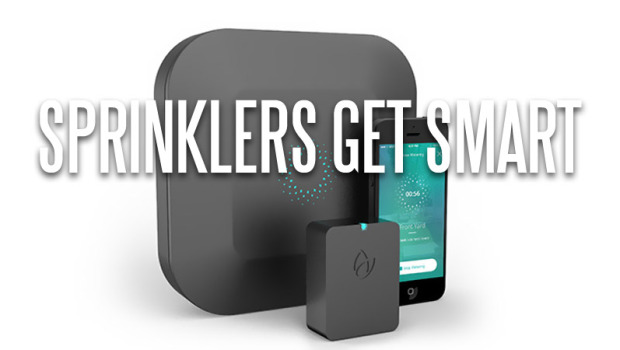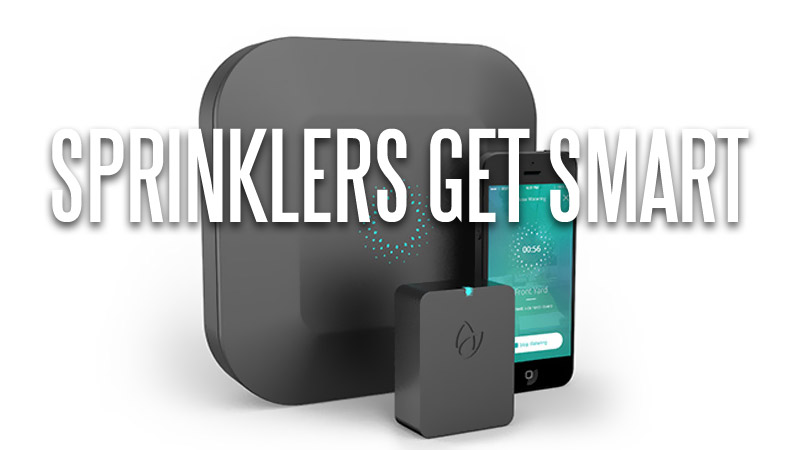Over the years of writing for the Important Media Network (and its previous incarnation, Green Options), I have been instantly attracted to good consumer technology products that make the environment a priority. The Nest thermostat is a prime example of this, as are the various WiFi-controlled LED lights. So, when I heard about Blossom- a smart sprinkler system that promises to cut its users’ water bill by more than 30 percent- I was immediately hooked.
The first line of the press email I received read, “Blossom is a first-of-its-kind smart sprinkler system that conserves water, significantly reduces water utility bills and gives users control from their smartphones or tablets.”
Founded by a team with experience at Skype, Nest, Microsoft, Linksys, and Vizio (amongst others), Blossom has just launched a Kickstarter campaign which intends to “scale manufacturing faster and begin shipping in volume sooner.” And as of writing, the campaign has already passed two-thirds of its target with 29 days to go (and as I sit here, that number just keeps getting higher and higher).
The premise behind Blossom is remarkably simple, and seems to be a logical “next step” in consumer sprinkler technology, smartphone apps, and environmental awareness. It automates your sprinklers based on real-time weather data, provides full control via an app, and claims to be able to lower your water bill by up to 30%.
As the developers note, “almost half of the water used for outdoor irrigation is wasted.” With this in mind, Blossom sets out to minimize water waste, and better distribute the water according to what your garden’s irrigation needs are. “Most residential irrigation systems rely on archaic controllers that don’t take actual water needs, (which are) based on the local weather and vegetation, into account.” Blossom, however, combines the information available from weather services to determine when is the best time to water, and uses the layout of your garden to determine what area needs more or less water.
Blossom Smart Sprinkler Launch Video
“We know what it takes to build a reliable product that scales in the cloud and is cost effective,” noted Blossom founder Manrique Brenes. “Blossom is the culmination of the expertise we, as the company’s founders, gained in related fields combined with our desire to create something impactful across multiple sectors. With Blossom, we’re not only making users’ lives easier, we’re helping them save money, conserve water and protect the environment for future generations.”
Blossom is set to be priced at $179, and the company believes that it can pay for itself in water cost savings in less than one year. It works with apps for iOS and Android, and boasts a simple installation process with none of the hassles of having to rewire your existing sprinkler system: “Simply remove the old controller, mount the Blossom controller, connect the existing valve wires, and download the Blossom app to be up and running in less than 15 minutes.”
On top of an already robust system, Blossom connects using WiFi as well as the power of Powerline, which essentially turns an electrical outlet into an internet connection, “so you’ll constantly be connected to the data that makes your yard smarter.”
As a resident of Australia, I’m really excited to see what Blossom can do. Australia is set to see dryer summers and winters, which will minimise both the natural rainfall we get as well as the amount of water we can direct to our gardens. If Blossom can live up to its aims, then in many ways it could be the salvation of thousands of gardens around Australia — and no doubt the world.
Thanks go to Justine Mrsich of Lages & Associates who contacted me about Blossom, and helped me with images and information about Blossom. This article was originally published by our sister site, Cleantechnica, and was written by Joshua S. Hill.


You must be logged in to post a comment.